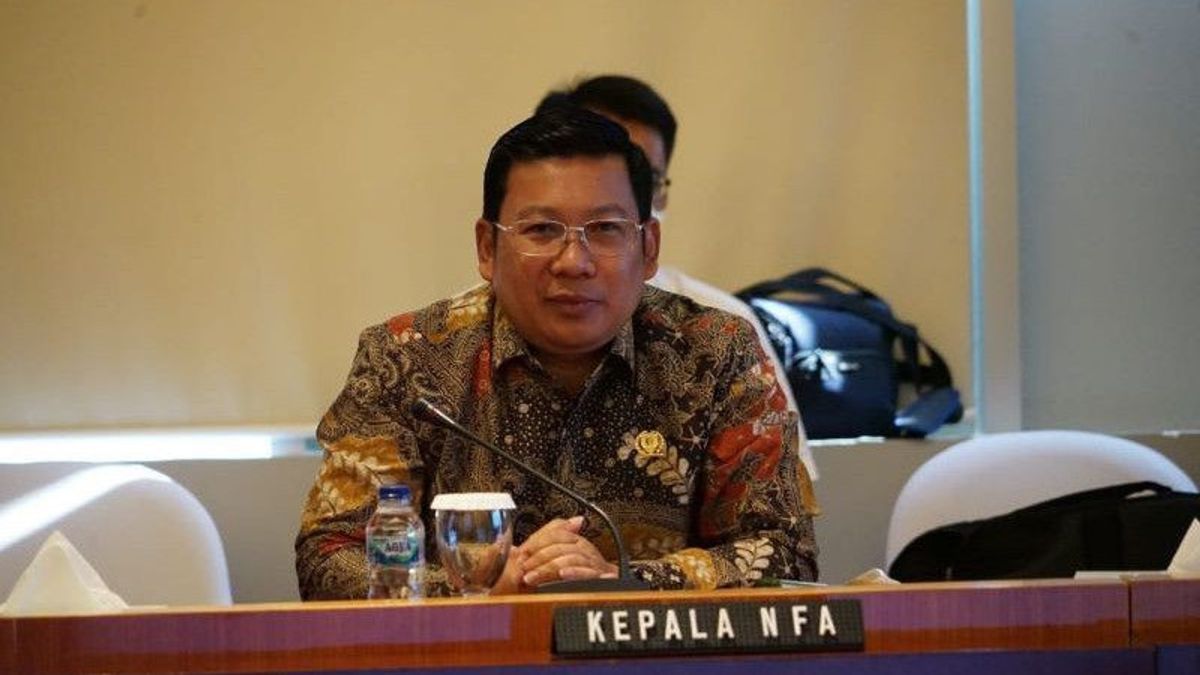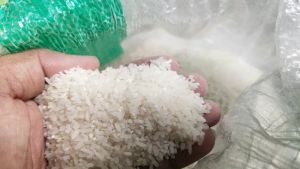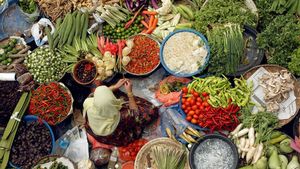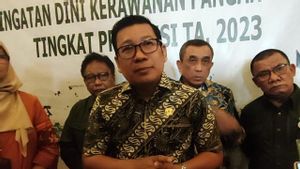JAKARTA - The handling of food loss and waste or the shrinking and waste of food is an issue that is being highlighted by the world, including Indonesia. The reason is, food loss and waste causes economic losses and also has an impact on environmental sustainability.
Head of the National Food Agency (NFA) Arief Prasetyo Adi revealed how large the behavior of food waste is in Indonesia. Arief said, Indonesia produces 23-48 million tons of food waste per year. Food here is food that is not eaten due to excess supply.
The figure is based on a study conducted by the Ministry of National Development Planning/National Development Planning Agency for the period 2000-2019.
The amount of food waste should be able to support 61-125 million people or the same as 29-47 percent of the Indonesian people's population. Meanwhile, economically, food loss and waste have resulted in a loss of around IDR 551 trillion, equivalent to 36.6 billion US dollars," he said in an official statement, Thursday, July 27.
This was conveyed by Arief at the Leadership Dialogue event at the United Nation Food Systems Summit (UNFSS) +2 Stocktracking Moment in Rome, Italy, Wednesday, July 26.
On that occasion, Arief said that Indonesia is paying serious attention to the handling of food loss and waste considering this is a global issue and not only has an impact on food security, but also affects economic growth and environmental sustainability.
Therefore, said Arief, it is very important for every country to prevent and reduce food loss and waste. About 14 percent of total global food production has decreased (food loss), and 17 percent of food is wasted due to food waste.
"Therefore, we need global collaboration in an effort to suppress food loss and waste considering its impact on food and nutrition security," he said.
Based on the food production chain, said Arief, the biggest points that affect food loss and waste occur at the consumption stage. This is a reference for the government in formulating government policies in dealing with food loss and waste effectively.
"In dealing with the issue of food loss and waste, Indonesia has identified several policies, including by changing behavior, increasing support system, strengthening regulations, optimizing funding, utilizing food loss and waste, developing studies, and collecting food loss and waste data," he said.
On this occasion, Arief also explained a number of strategies to prevent food loss and waste, among others, by creating platforms and collaborating across sectors involving three groups of actors.
The first group is a food provider or donor which includes restaurants, hotels and retailers and other food sellers. The second group is a social organization that is a food hub tasked with connecting food providers or donors with recipient groups, such as the FoodBank of Indonesia, the Surplus Foundation, the National Amil Zakat Agency, and others.
VOIR éGALEMENT:
Meanwhile, the last group is a group of beneficiaries who are facing food shortage problems, including children, the elderly, orphanages and parties in need.
Arief said the Indonesian government also provides and facilitates food logistics vehicles for the distribution of excess food from donors to beneficiaries. No less than 27 tons of excess food has been distributed to beneficiary groups in Jakarta throughout December 2022-February 2023.
"Of course we will expand this to various regions so that this movement continues to roll and has a positive impact on our food security," said Arief.
In addition, the government through NFA also encourages the national movement called 'Stop Boros Food Waste' to increase public awareness about food loss and waste. This is in line with President Joko Widodo's direction to be aware of the threat of a food crisis, one of which is by suppressing food loss and waste.
"Hopefully by promoting this campaign, socialization and advertising to the public to prevent and reduce food waste, both at the national and provincial and district levels," he explained.
The English, Chinese, Japanese, Arabic, and French versions are automatically generated by the AI. So there may still be inaccuracies in translating, please always see Indonesian as our main language. (system supported by DigitalSiber.id)










